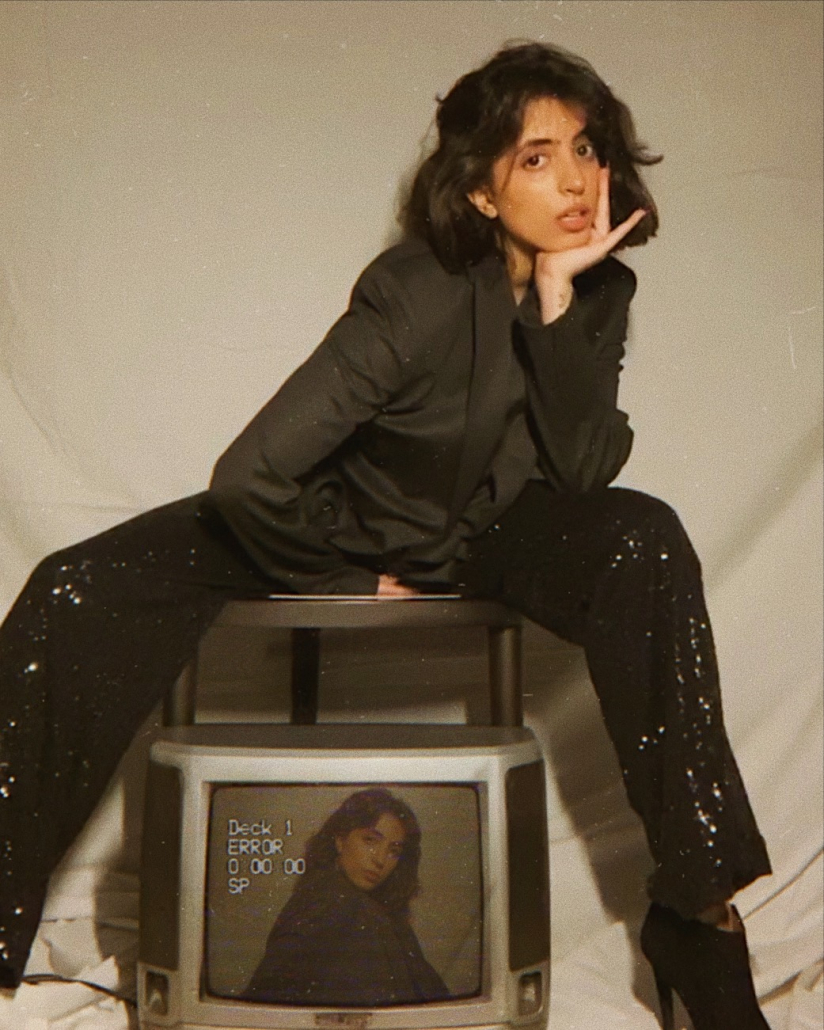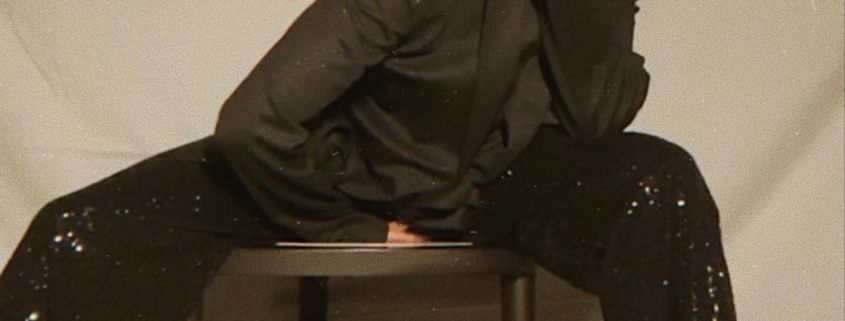SCA junior makes socially critical films

Pearl Malik’s socially aware short films have garnered her hundreds of thousands of views and an impressive social media following. (Photo courtesy of Pearl Malik.)
A young Pearl Malik found her happy place in the confines of her room, falling in love with Bollywood films, one after the other. She was, as Indians would call it, filmi — infatuated with the world of film and everything it represents. What started as shooting short home videos on her camcorder and editing them on iMovie translated into a series of incredibly beautiful short films that have garnered her several hundred thousand views and an impeccable social media presence.
Malik, a junior majoring in film production, was first exposed to socially provocative filmmaking when she worked on a three-month-long project with a nongovernmental organization to record the lives of children experiencing homelessness on Indian railways. Collating stories of drug abuse, runaways and forced labor, Malik realized the importance of amplifying these voices. Her venture into real and authentic storytelling is what lamented her love for socially critical films.
“The kind of films that I’m going to make are genuinely going to be a very strong reflection of the society we live in,” Malik said. “We’ve lived in a fantasy world for extremely long … We don’t have enough content that makes us realize the small little hidden gems in the society that we live in.”
After releasing her short form documentary-style videos called “Quarantine Tapes,” Malik blew up on Instagram. Watched by thousands of people across the world, the mini tapes brought the inner worlds of celebrities and their honest quarantine thoughts to life. The love for her content helped create a community of over 18,000 ardent followers.
“Why I did this was also to humanize famous people,” Malik said. “We don’t realize that they’re people too at the end of the day; they were going through the same things that we were.”
It wasn’t until lockdown that Malik realized the power that social media has to reach people everywhere.
“It doesn’t judge you based on what kind of art you create, what kind of audience you have. You basically can start from scratch and grow into millions, just as someone else can,” Malik said.
The tapes are conversational pieces that bring us a step closer to the lives of incredible people. From Indian Drag icon Rani KoHEnur’s journey as a proud member of the LGBTQ+ community to fashion designer Masaba Gupta and her journey as a mixed-race fierce woman in a tough industry, every tape that Malik films establish a vital narrative that is essential to talk about.
As a child, Malik was socially anxious. She was quiet and camera shy and experienced bullying in school. It was during those times that Malik’s mother and mentor, Ritu Malik, said her daughter truly began to express herselfthrough her art.
“She started expressing her opinion about bullying … which nobody usually speaks about,” Ritu said. “She never told me about it, but she handled it by expressing it in her media.”
Malik’s mother stressed how important the environment of her household was in raising the strong woman that Malik is today.
“Our household is dominated by women, Pearl has always seen very independent women around her,” Ritu said. “We are also very expressive people.”
Today, Malik is a relentless force of energy. She has built networks with some of the most talented people within the Hindi film industry and is creating content that she is passionate about and unafraid to put out.
Sharing vulnerable content that’s honest and personal to her is an essential part of Malik’s filmmaking. Her short film, “Film School Rejects,” is a reflection of her own inner battles with depression.
“I didn’t make [posting vulnerable content] a big deal in my head, because then I would be scared to put it out there. I was like, ‘What if people judge?’” Malik said. “That’s a fear that someone with a mental health issue constantly has.”
Malik said that much like her, many other people too are bottling up their feelings in the fear of being judged. However, the messages she received from viewers who related to her struggles made it all worth it.
“The response that I got in my DMs, around 300 people on the day itself, who messaged me and spoke about their stories and spoke about how this felt very close to their heart,” Malik said. “I swear to God, I have never felt that happy.”
She believes that showcasing content like this is not just a cathartic experience for the many that have bottled it up much like her; it is also essential to drive the conversation in our communities.
“The pain is not physical; it’s not something tangible, you can point out where it is,” Malik said. “Seeing a physical representation of your emotions is actually very therapeutic. And that I could make other people feel that, felt really amazing.”
Malik first experienced social media criticism when she opened up about her battle with bipolar disorder.
“I decided that I don’t want to be ashamed about it anymore and I want to make a short film about the struggles, but it was reported multiple times that very day,” Malik said.
With the film taken down, Malik felt as though her voice, her moment of brave vulnerability, was squandered.
“I was genuinely heartbroken about it,” Malik said. “Especially since this is the first time that I allowed myself to openly say that I go through something like this.”
Malik’s experience with the gut-wrenching side of social media inspired her to create her most recent piece of work, “Behind closed doors” — a film about victimization by social media bullying.
Anveshika Sahi, the lead actor of the film, discussed how Malik sat her down to talk about how she wanted the story told to the world and the personal importance of bringing the narrative to a larger audience.
“It became even more personal, and throughout the process, in every single thing that we did, I felt like we were doing this not just for ourselves but for a lot of people out there,” Sahi said. “And that’s something that was beautiful.”
Malik has realized that a part of putting your work out there in today’s times is being subjected to undue hate.
“You can’t control other people’s reactions to the way you live life,” Malik said. “At the end of the day, they’re faceless people sitting behind the screens, and their opinion cannot change the way that I look at myself.”
Malik believes that an essential attitude that should be adopted by everyone is to be shameless.
“When you become shameless you don’t fear how other people will react,” Malik said. “Have zero shame in promoting yourselves.”
In this incredibly tough and competitive industry, Malik has truly carved a space for herself. From making sure she controls her creative autonomy to gracefully refusing work that doesn’t align with her creative vision, Malik has proven to be this unbelievably strong powerhouse.
She recalls her father’s keen advice as something that’s stuck with her since she was young — as well as a piece of wisdom she’d like to pass onto others.
“You need to realize your worth, your work’s worth, and then no one can take you for a ride,” Malik said. “If you don’t have confidence in what you’re making, no one is gonna take you seriously and even if I don’t have confidence in myself, I put on a face that I do.”

